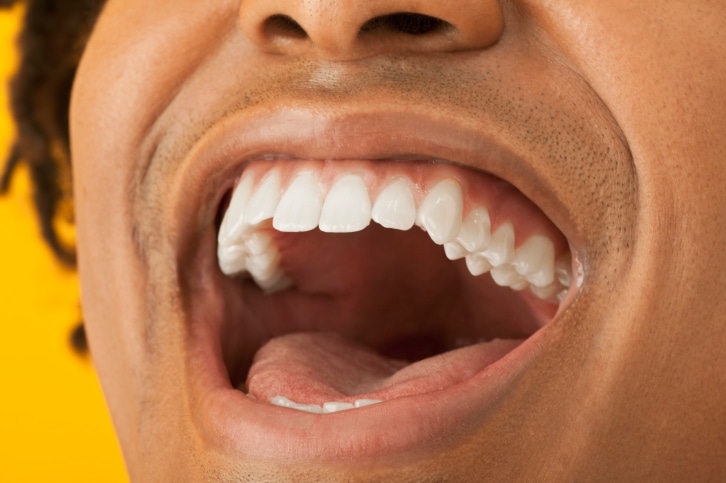
Saliva is crucial for digesting food, controlling bacteria, protecting teeth from decay, and chewing and swallowing. If you aren't producing enough saliva, your mouth will probably feel sticky and dry. Chewing, swallowing, tasting, and speaking can become difficult. Other symptoms can include a burning feeling in your mouth, a dry throat, cracked lips, mouth sores, an infection in the mouth, and a dry, rough tongue.
What Saliva Really Does
Dry mouth happens when your mouth produces little to no saliva. What little saliva you have might be thick and stringy. But dry mouth is more than just feeling thirsty.
Saliva helps you taste what you eat and drink, and it helps you digest your food. It flushes food particles away from your teeth and neutralizes acids to help prevent tooth decay. Dry mouth is also called xerostomia.
Dry Mouth Includes Dry Skin
Lack of saliva causes the skin in and around the mouth to become dry and tight. Your lips may become cracked, and sores might form at the corners of your mouth.
Your tongue can feel rough and dry as well. And you might have trouble swallowing or difficulty speaking without the lubrication that saliva provides.
RELATED: 5 Oral Symptoms You Should NOT Ignore
Embarrassing Side Effects
Dry mouth causes unpleasant side effects. Because saliva isn't flushing your mouth of food particles and debris regularly, it's common to develop persistent bad breath.
If you wear lipstick, you might find that it sticks to your teeth because no saliva is there to rinse it off. Dry mouth can be the culprit when it comes to hoarseness or a tickle in the throat.
Medicines Can Cause Dry Mouth
More than 400 types of medications can cause dry mouth, including over-the-counter drugs for allergies and cold symptoms, and many prescription drugs for high blood pressure, overactive bladder, and mental health problems.
It can also be a result of medical treatments such as radiation for certain cancers, which can damage salivary glands. Chemotherapy sometimes causes saliva to thicken and make the mouth feel dry.
Nerve Damage Can Affect Dry Mouth
Dry mouth can be related to nerve damage from a head or neck injury. Certain nerves carry messages between the brain and the salivary glands.
If these nerves are damaged, they might be unable to tell the salivary glands to make saliva. Without saliva, it's also hard to taste food because saliva carries the flavors in food to nerve cells in the mouth and throat.
Other Causes of Dry Mouth
Dry mouth can be caused by a medical condition called Sjögren's syndrome. Sjögren's is an autoimmune disorder in which white blood cells called lymphocytes attack the body's tear and salivary glands. This leads to dry eyes and dry mouth, the most common symptoms of Sjögren's syndrome. Dry mouth also occurs in patients with diabetes and HIV/AIDS.
RELATED: Do You Really Need To Floss? Yes!
Smoking Can Make It Worse
There are plenty of reasons to quit smoking, and having a dry mouth is one of them. Smoking does not cause dry mouth. But smoking cigarettes, cigars, and pipes or using other tobacco products, even smokeless ones, can aggravate dry mouth. Alcohol and caffeine are also drying.
A Doctor Can Treat Dry Mouth
Talk to your doctor or dentist if you're suffering from the symptoms of dry mouth. If you're not currently taking medications that may be causing the problem, your symptoms might point to an underlying and undiagnosed medical condition like Sjögren's syndrome or diabetes.
Take Care of Your Teeth
A lack of saliva can be harmful to your teeth. Regular dental checkups are essential if you have dry mouth. Faithfully floss and brush your teeth every day in order to remove food and bacteria. If you can't brush after eating, rinse your mouth. Sip water frequently throughout the day and use alcohol-free mouthwash or dental products.
Other Tips to Help Dry Mouth
Sipping water frequently will help keep your mouth moist. But steer clear of sugary, acidic, or caffeinated drinks. Drinking water or milk with meals increases moisture and helps with chewing and swallowing. Try sleeping in a room with a humidifier to decrease dry mouth symptoms. Make sure you see your dentist for regular cleanings and exams.









